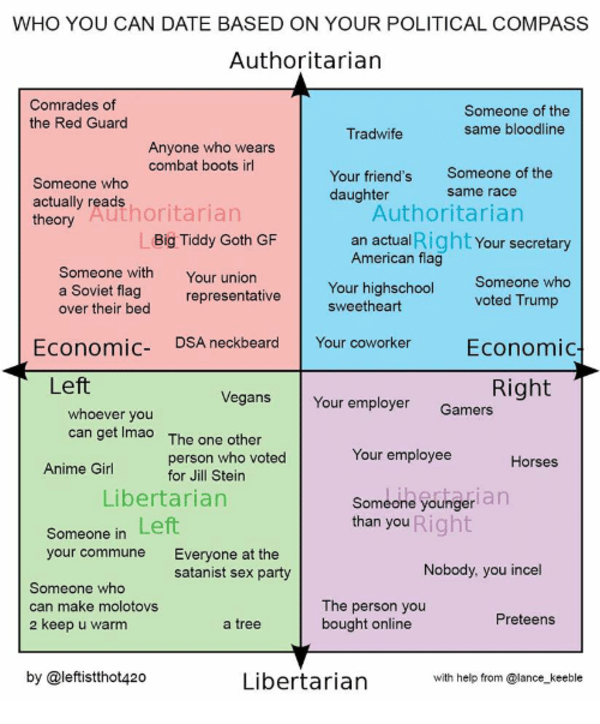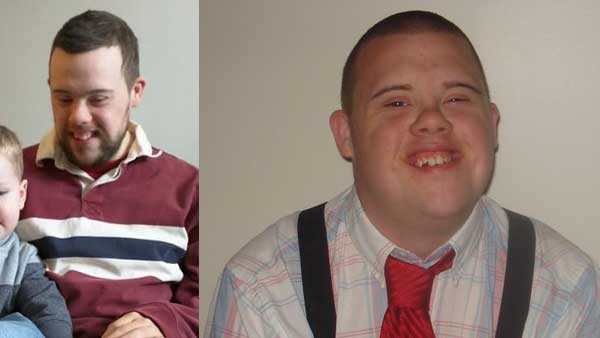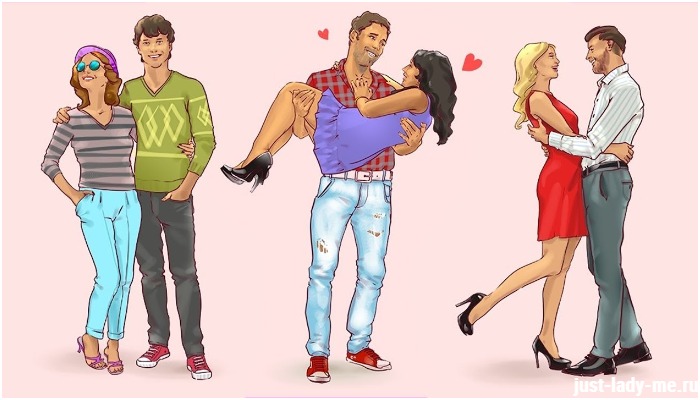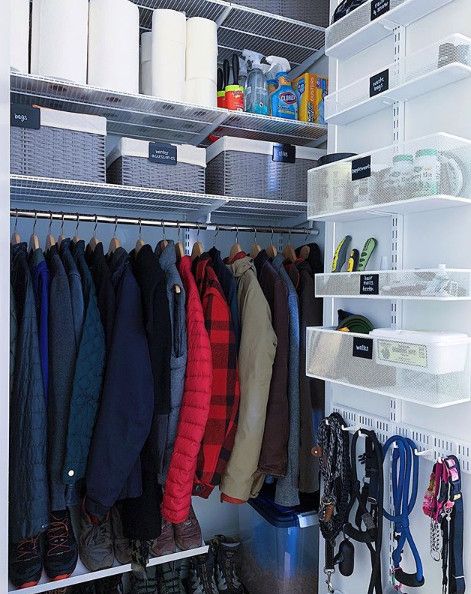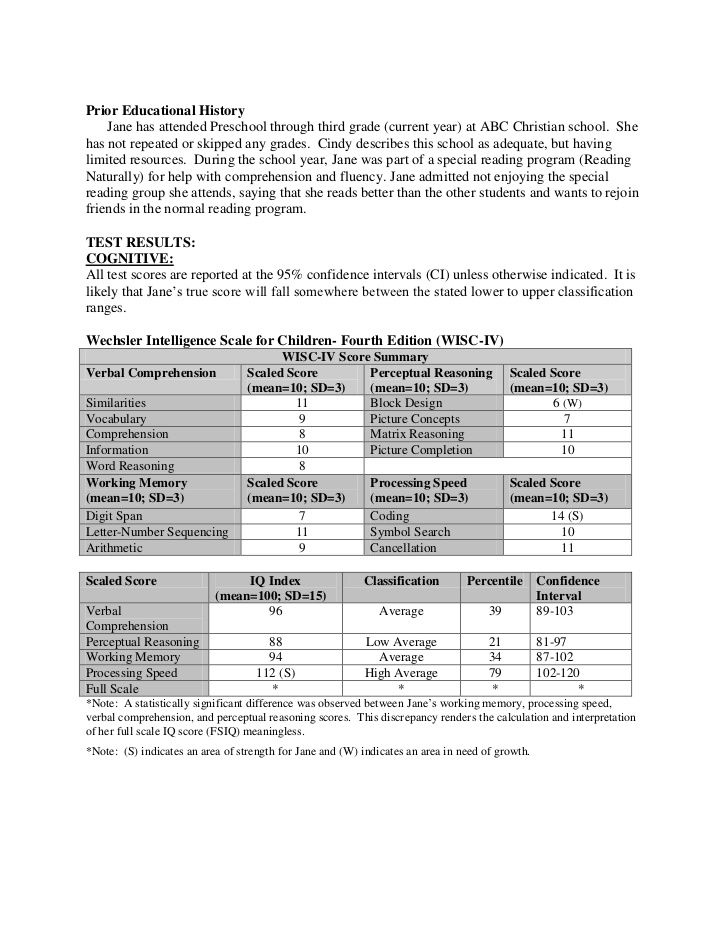Dating someone with the same personality type
What Happens When You Share A Personality Type With Your Spouse?
When it comes to marriage, you have to be on the same page. You and your spouse have to have the same outlook on life; you have to be able to see how the future is going to pan out for you as a couple. There’s a reason married couples, over time, begin to refer to themselves as “we” rather than “I”— marriage knots two lives together in the quest for a shared destiny.
So given the need for compatibility in marriages, wouldn’t it make sense to marry someone with whom you share a personality type? What could be more compatible than that? If two people are so fundamentally similar, surely marriage is a breeze?
Sure, it can be… but not always.
Two INTP peas in a pod
My husband and I have been married since 2005. We’re pretty good at this whole marriage lark, really. We argue occasionally, but nothing that has ever made us question our ability to be together. We’re childfree, by choice, though we do have two cats that we both dote on. By and large, our life together is a happy, content one.
In terms of personality, we differ greatly— or at least, superficially speaking. To borrow a common theme; I’m fire, and he’s ice. I’m passionate, anxious, and highly strung. He’s calm, collected, and laid-back. Before we both took personality tests, I would have told you we were the very definition of “opposites attract”.
Then we each took a personality test… and both delivered INTP results. After the initial shock, we began to see how two rather different people could be, at their core, remarkably similar. After reflection, it made more and more sense, and I began to wonder how much our identical personality types had influenced our marriage over the years.
The benefits of being married to someone of the same personality type
You see the world in the same way
There are numerous benefits to being married to someone of the same personality type, but perhaps the most obvious is that the way you approach the world is the same.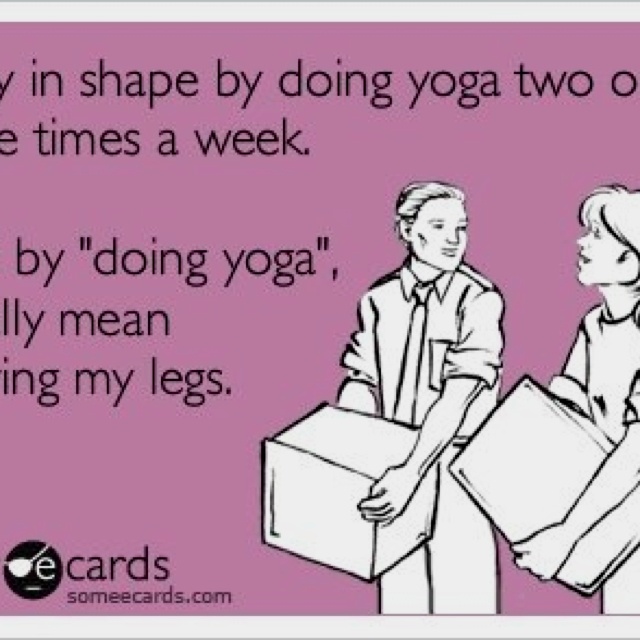 Your worldviews are consistently aligned. You judge the problems of the world, and the solutions to those problems, in the same way. There’s never any argument about the basic way you perceive the world, society, and even smaller issues closer to home. By and large, you’re on the same page.
Your worldviews are consistently aligned. You judge the problems of the world, and the solutions to those problems, in the same way. There’s never any argument about the basic way you perceive the world, society, and even smaller issues closer to home. By and large, you’re on the same page.
Take, for example, my husband and my own childfree stance. While I’m not saying that every INTP is childfree, we did have remarkably similar thoughts on the matter when we first discussed it while dating. We’d arrived at those thoughts independently, but they rather eerily mirrored one another… because we see the world in the same way.
You know how to relate to one another
My husband and I are, by nature, very logical people; I’m more prone to flaring and getting annoyed (and he’s more prone to sulking), but we both, ultimately, strive for facts over feelings.
The fact that I can always rely on my husband to reflect my own desire for logical, rational thinking is genuinely something I find myself feeling grateful for on a regular basis.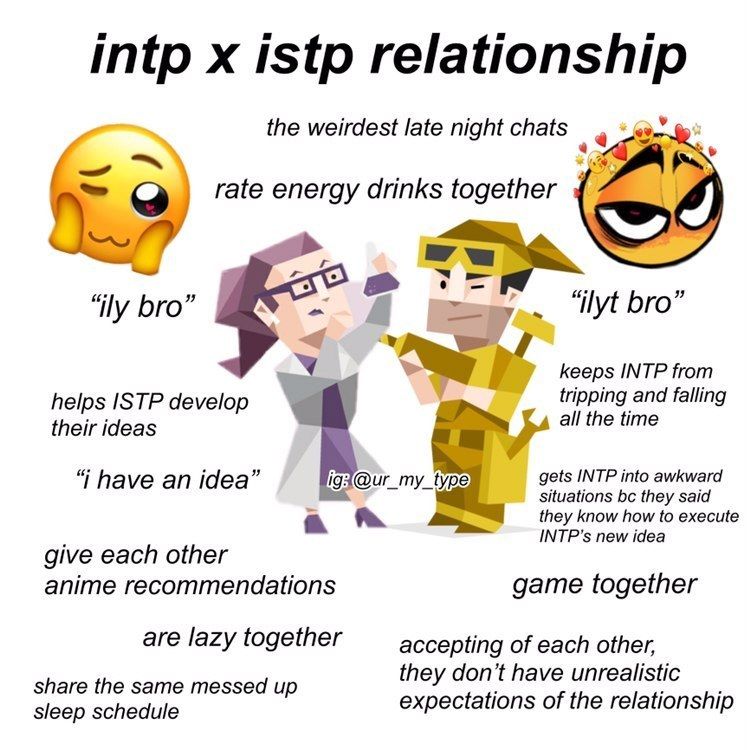 While neither of us are unemotional in general, we’re able to cut down to the basics and relate to one another on a fact-based level. For example, if I want to convince my husband of something, I know to reach for factual rather than emotive arguments. I imagine the opposite would be true for couples with Feeling over Thinking personality types, but the benefit is the same: you know how to relate to one another on the big issues in life.
While neither of us are unemotional in general, we’re able to cut down to the basics and relate to one another on a fact-based level. For example, if I want to convince my husband of something, I know to reach for factual rather than emotive arguments. I imagine the opposite would be true for couples with Feeling over Thinking personality types, but the benefit is the same: you know how to relate to one another on the big issues in life.
The disadvantages of being married to someone of the same personality type
There are no fresh ideas
The biggest disadvantage to being married to someone with the same personality type is also the biggest benefit: you see the world, and the problems you encounter, in the same way.
This means that when there is an issue you need to work through as a couple, you’re on the same page. That can be great — and frequently is! — but here’s the kicker: what if your agreed, mutual solution is the wrong choice? You’re stuck.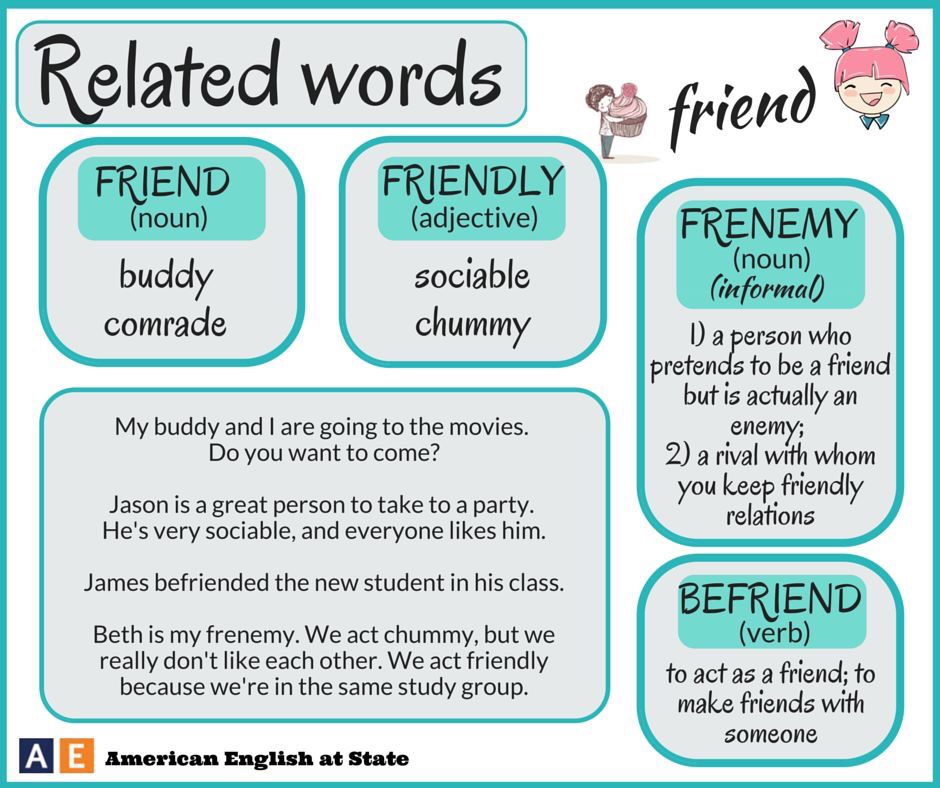
As you’re both approaching the issue from a similar perspective, there’s nothing new coming to the table when your first plan fails. This can lead to circular attempts to try and resolve an issue; you’re desperate for a new idea, but there’s nothing forthcoming.
There’s no one to challenge your poor decision-making
While it’s wonderful to share similar positive attributes with your spouse, you also have the same flaws. The result of this is that you can double-down on the same mistakes and poor decisions, because there’s no one to say that they think a particular course of action is a bad idea.
This can lead to serious misjudgements, as the one person who is best placed to keep your worst impulses in check may actually encourage you to follow those impulses— because their inclination is to react exactly as you already are. We all need someone in our life who is able to cool our temper or insist we think before we act, but my husband is not the person I can rely on to do that for me.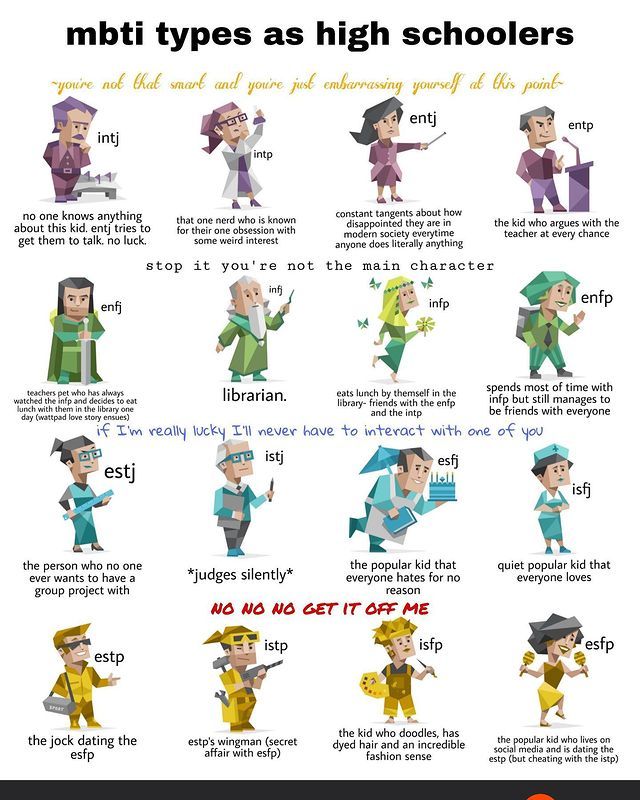 We have a tendency to encourage one another’s worst impulses, because we react in similar ways when we experience negative stimuli.
We have a tendency to encourage one another’s worst impulses, because we react in similar ways when we experience negative stimuli.
To conclude
Ultimately, marrying someone with the same personality type as you helps to ensure harmony, but it’s not a complete guarantee against disagreement and arguments. Personality types only take us so far; the rest comes from the bond between a couple and how you are willing to compromise for one another.
With that said, I would suggest that when it comes to learning to live with one another, couples who share a personality type are able to adapt rather well. While this, in and of itself, is not enough to sustain a marriage, it’s a pretty good start!
10 Reasons Why Dating Someone With The Same Personality Can Be A Terrible Idea
RelationshipsIt’s no surprise that having the same personality as your significant other can make understanding them so much easier, not to mention you’ll just how to make them happy and how to avoid pissing them off! But, sometimes (almost every time) there can be disadvantages to being two peas in a pod.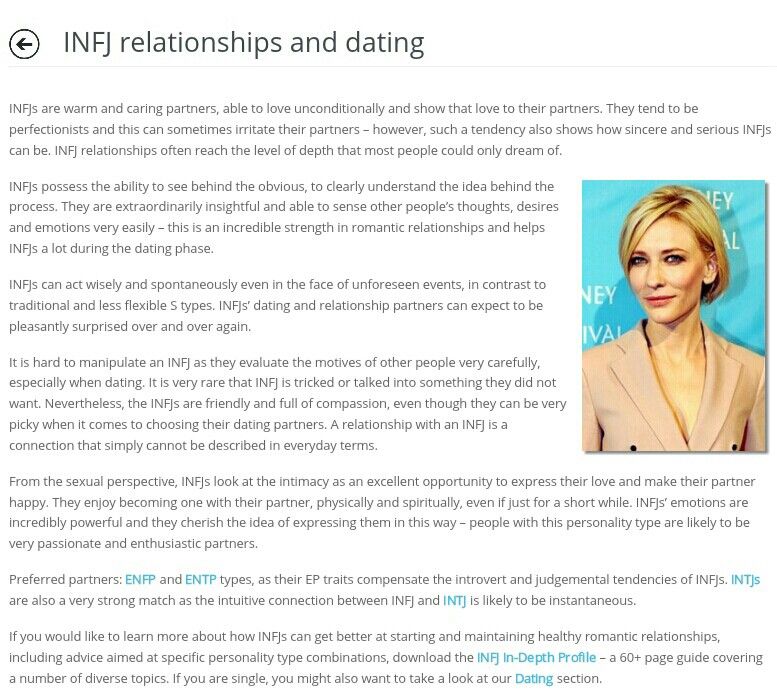 Here are 10 reasons why you probably shouldn’t be with someone that has the same personality:
Here are 10 reasons why you probably shouldn’t be with someone that has the same personality:
1. Loving the same thing stops you from experiencing something new
Don’t get me wrong, there’s a lot of comfort that comes from enjoying the same things… My partner loves seafood, I’d rather watch paint dry than eat calamari. It can be a problem. But I had to try it to know I didn’t like it, and that was a new experience. Too much similarity often means that both of you aren’t going to push each other to try something new. Overtime doing the same thing can be tedious.
2. They know just how to get under your skin
Dating someone with the same personality means your partner might know just how to make you happy, but they know just how to push your buttons to. Arguments will be your greatest downfall because you both have an insight on just what makes the other person tick.
Advertisement
3. Competitive personalities can create hostility and tension
Typically, in a healthy relationship competition can be what spurs you both to encouraging one another, pushing one another on to achieve the goals you set individually and as partners. But it can go bad real quick if you become competitors amongst yourselves. Soon enough you start comparing yourself to your partner. So when one partner gets a raise or continuously beats you in-game night, it can turn into jealousy and/or resentment.
But it can go bad real quick if you become competitors amongst yourselves. Soon enough you start comparing yourself to your partner. So when one partner gets a raise or continuously beats you in-game night, it can turn into jealousy and/or resentment.
4. Comfort can be your greatest enemy
The biggest worry here is that you both get into a rut that neither of you is willing to put a stop to. Just like with trying new experiences, you can both lose interest in intimacy or never leaving the house and becoming ‘homebodies’. Having the same personality means you’re both fine with it and you wind up ‘going through the motions’ with neither of you making an effort to change it.
5. There’s no one to challenge your poor decision making
While it’s beautiful to share similar positive attributes with your spouse, you also have the same flaws. The result of this is that you can double-down on the same mistakes and poor decisions because there’s no one to say that they think a particular course of action is a bad idea.
Advertisement
6. No new ideas
One of the most significant disadvantages to being with someone with the same personality type is also the biggest benefit: you see the world, and the problems you encounter, in the same way. As you’re both approaching the issue from a similar perspective, there’s nothing new coming to the table when your first plan fails. This can lead to circular attempts to try and resolve an issue; you’re desperate for a new idea, but nothing is forthcoming.
7. Having the same struggles isn’t necessarily a good thing
Going through the same struggles, while it may strengthen your bond, doesn’t mean you’ll be able to deal with it any better. It could actually exacerbate the situation. As above you are more likely to attach the issue in the same way, offering no new solutions for each other.
Advertisement
8. Two introverts are more prone to alienation
While not feeling pressured to go out can be a great pro when two introverts date, it also can cause them to alienate themselves.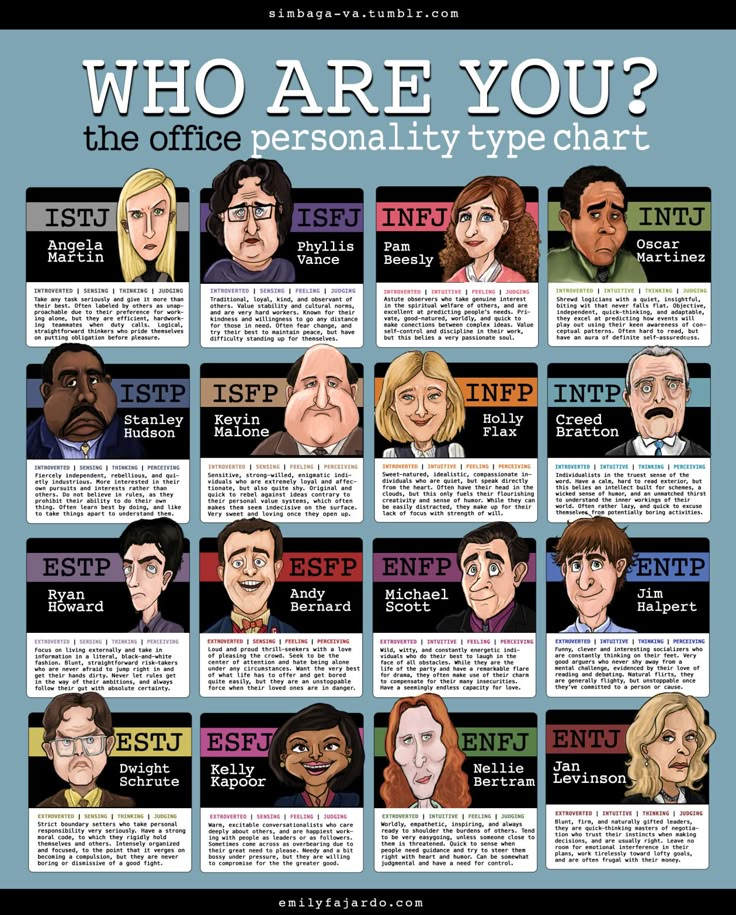 Since neither person feels entirely motivated to socialise, they often convince themselves to stay inside. While this might sound like a dream come true, it can actually bring a lot more disadvantages.
Since neither person feels entirely motivated to socialise, they often convince themselves to stay inside. While this might sound like a dream come true, it can actually bring a lot more disadvantages.
Advertisement
9. Extroverts can get bored with each other
Extroverts are continually looking for interactions and excitement, which will inevitably lead to boredom at some point. If and when both extroverts become bored, there’s always the possibility they’ll want to end things and chase that next high.
10. You are the enabler to each other’s faults
If you are a procrastinator, lazy and easily enabled into demotivation – then it makes no sense to double down on this behaviour. There’s almost no hope for escape from your own faults if it’s enabled by your S.O to a point where you both don’t even recognise it as a fault and spiral into the depths of an unfulfilled relationship.
Have you ever found yourself dating someone with an almost identical personality? Share your experience below!
Featured Image Source: https://unsplash.
 com/photos/S9yn7XYqxoU
com/photos/S9yn7XYqxoUSign Up to Our Newsletter
Get notified about exclusive offers every week!
Batsi MutatiriPrevious Article
Next Article
Myers-Briggs Personality Type Compatibility: What kind of people are meant for each other
Love
- Photo
- Adobe Stock
There are many ways to understand who you really are and what kind of people you will be most comfortable communicating with. Some people trust horoscopes and compatibility of zodiac signs, others rely on socionics, others trust only psychology. Any of the ways can be working if you do not perceive it as the only truth: the truth is always in the middle.
Among the various typologies, Myers-Briggs "characters" have recently gained popularity.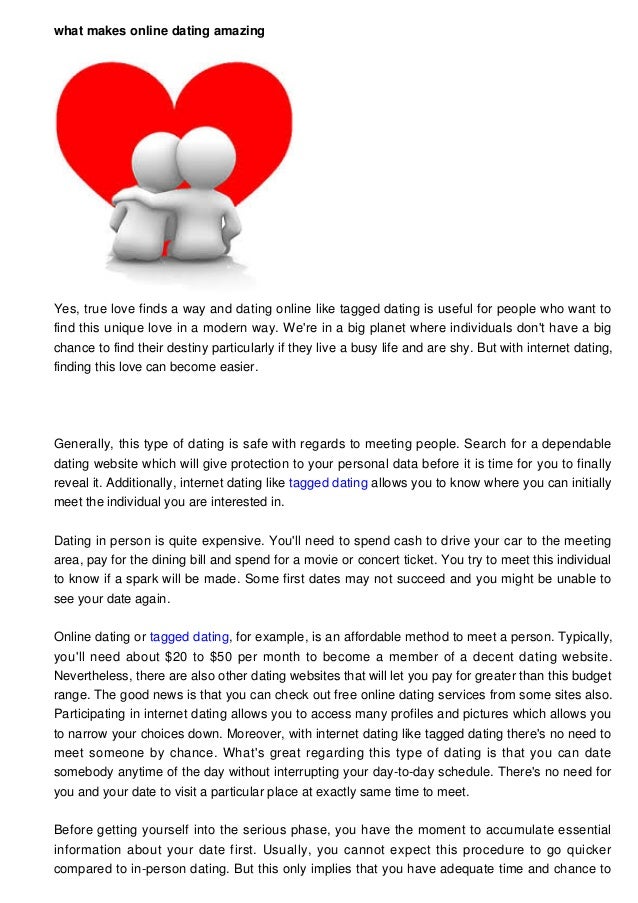 This typology was developed by the writer Isabelle Briggs Myers and her mother Katerina Cooks Briggs, based on Jung's typology. Typology became especially popular in the 1940s and became a popular way in the United States and Europe to determine the professional and personal inclinations of a person.
This typology was developed by the writer Isabelle Briggs Myers and her mother Katerina Cooks Briggs, based on Jung's typology. Typology became especially popular in the 1940s and became a popular way in the United States and Europe to determine the professional and personal inclinations of a person.
Tests for this typology are currently included in the curriculum of many colleges, despite the fact that academic circles are wary of this classification. Psychologists and psychiatrists accept typology with many reservations and admit that it is more of a fun way to get to know yourself than a working principle worth living by.
- Photo
- Adobe Stock
What types are
We talked about different types of personality in more detail in a separate article. In short, all people have four parameters on the basis of which the division is made: introversion / extraversion, sensory / intuition, thinking / feeling, decisions / perception.
Four parameters multiplied by 4 options - you get 16 different variations. To save time, we will not describe the features of each - it's all on the Internet. Here they are:
ESTJ: Administrator
ESFJ: Teacher
ENFJ: Mentor
ENTJ: Commander
👉 To understand what type you belong to, you must pass the test - short or long -long.
What personality types converge best
The most optimal pairs are obtained from people who have two parameters that match, that is, two letters. This means that these people look at the world in the same way and perceive the surrounding reality. On the other hand, people with a complete match of characteristics will be bored together, and therefore at least 1-2 letters should be different.
ENFP
-
Description: An enthusiastic, creative and sociable mind who never gets bored.
-
Ideal couple: INFJ and INTJ
Ideal partners for this extroverted type are not the same extroverts at all.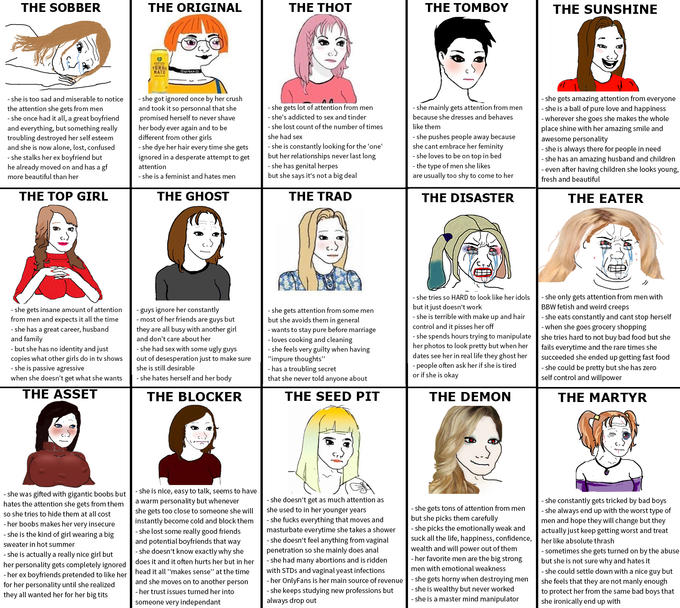 ENFP is a rather impulsive type, and therefore he needs someone down to earth and intuitive. In turn, the energy of the “fighters” will not let INFJs and INTJs get bored.
ENFP is a rather impulsive type, and therefore he needs someone down to earth and intuitive. In turn, the energy of the “fighters” will not let INFJs and INTJs get bored.
ISFJ
These people seem to be made for serious long-term relationships: they are responsible, loyal and carefully choose a life partner. Someone completely opposite, like a determined extrovert, will help you enjoy the facets of the relationship that they hold most dear—intimacy, loyalty, and depth of feeling.
- Photo
- Adobe Stock
ISFP
The most spontaneous and impulsive of all 16 types is not easy to deal with. In addition, they are also introverts, and therefore all the magic and fireworks of emotions take place inside them. Extroverts will help this type to get out of his "shell", and the ability to plan ahead will save the couple from sudden decisions.
ISTJ
"Administrator" believes only what he sees with his own eyes. An ideal partner will help him focus not only on facts, but also on his feelings. At the same time, both agree that intuition takes over.
- Photo
- Adobe Stock
ISTP
"Virtuosi" do not seek to start a relationship, cherishing their freedom, but not against common adventures. They get bored easily, but they love making new friends - extroverts fully cover their need for communication. ISTPs are most compatible with ESFJs and ESTJs.
INFP
-
Description: Poetic, kind and altruistic people, always ready to help.
-
The perfect couple: ENFJ and ENTJ
"Intermediaries" feel more than they understand, and they need the same intuitions. On the other hand, ENFJs and ENTJs balance them by starting to prepare for problems in advance.
On the other hand, ENFJs and ENTJs balance them by starting to prepare for problems in advance.
- Photo
- Adobe Stock
INTJ
Perfectionists and rather cold people in life. They need someone more open, extroverted, but also someone who also relies on intuition and can nip problems in the bud.
INTP
"Scientists" rarely open up to anyone and generally do not like it when they climb into the soul. Intuitive extroverts will know when it's best to leave this type alone and when to help make a difficult decision.
Subscribe to ELLE girl!
-
on Telegram ◽ on Viber
-
In VK ◽ in Zen
-
in VK about Korea
Tags
- Psychology
LEGISHING WORLE LIVELOGRAPTION:
Mugbilova, E.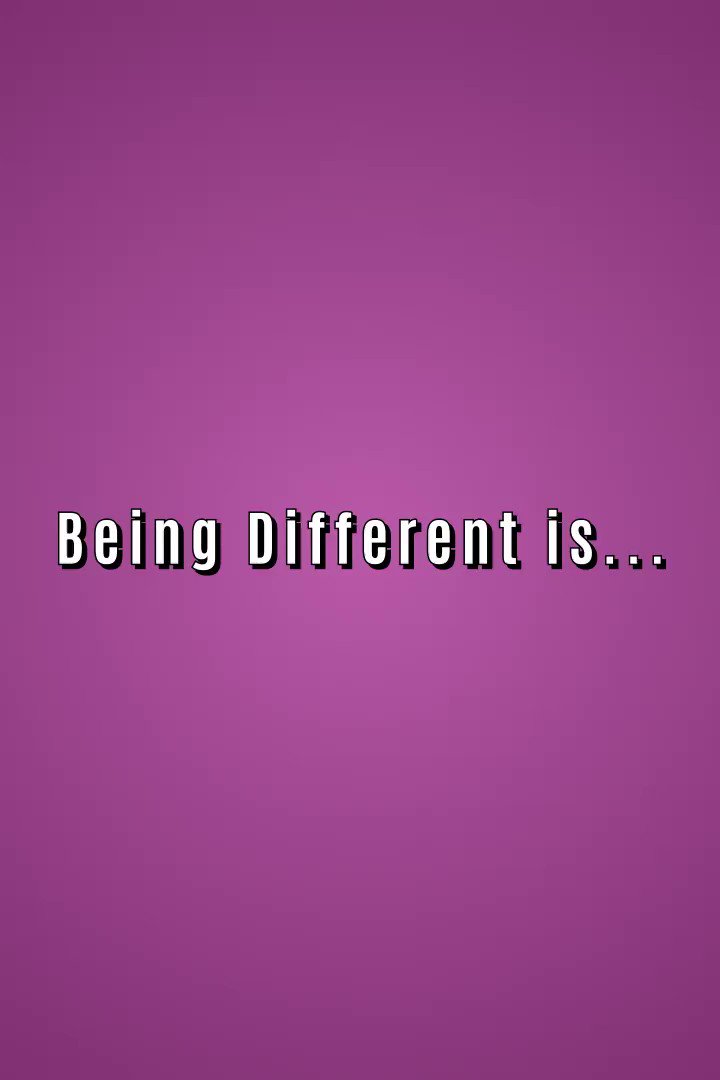 T. Prevailing personality type among adolescents / E. T. Mugbilova, A. A. Vlasov. - Text: direct // Young scientist. - 2022. - No. 4 (56). — S. 55-57. — URL: https://moluch.ru/young/archive/56/2841/ (date of access: 11/18/2022).
T. Prevailing personality type among adolescents / E. T. Mugbilova, A. A. Vlasov. - Text: direct // Young scientist. - 2022. - No. 4 (56). — S. 55-57. — URL: https://moluch.ru/young/archive/56/2841/ (date of access: 11/18/2022).
Objective: determine one type of personality out of 16, which prevails among others.
“Sometimes it’s worth returning to the place of your childhood, being alone ... in order to understand your true “I”, not shackled by stereotypes imposed by opinions ...” (Irina Yadialo)
In our time, this topic is of high relevance. Often in a new company of teenagers, you can hear the question: “Who are you according to your personality type?”. Many are lost, because the concept of “personality type” has become used among young people relatively recently. So what is meant by this term?
In psychology, the type or personality code refers to the psychological classification of different types of people. Personality types are sometimes distinct from personality traits, with the latter embodying a smaller group of behavioral tendencies. In simple terms, this is what characterizes and predicts a person's behavior in a given life situation.
Personality types are sometimes distinct from personality traits, with the latter embodying a smaller group of behavioral tendencies. In simple terms, this is what characterizes and predicts a person's behavior in a given life situation.
Personality types are formed on the basis of MBTI. This abbreviation stands for Myers-Briggs Type Indicator, Myers-Briggs typology. This is a testing technique that American Isabel Briggs Myers and her mother Katherine Briggs came up with at 1940s. In the course of their scientific research, they relied on the "Psychological Types" identified by Carl Gustav Jung. Testing and refinement of the methodology were carried out by the creators for 20 years.
The MBTI is based on four scales with polar meanings: orientation of consciousness, orientation in situations, decision making and preparation of decisions.
The figure shows the letters on the basis of which the personality types themselves are formed:
One code corresponds to a set of four letters (ENTP, ISFJ, and so on).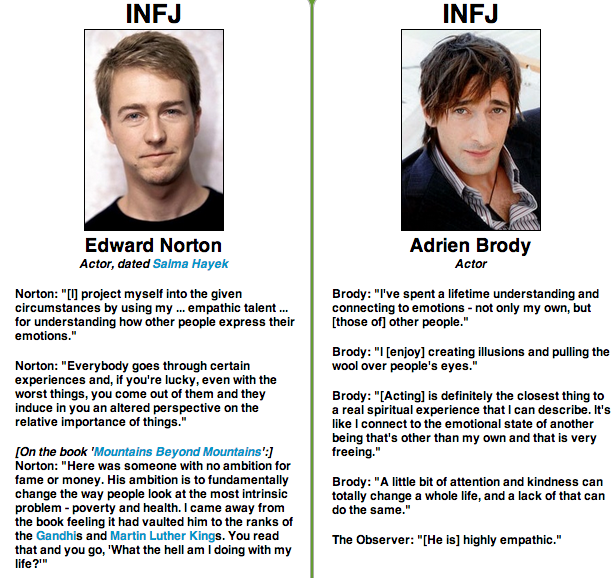 There are 16 personality types in total. They are divided into groups “Analysts” (Strategist, Scientist, Commander, Controversial), “Diplomats” (Activist, Mediator, Trainer, Fighter), “Keepers” (Administrator, Defender, Manager, Consul) and “Searchers” (Virtuoso, Artist , Dealer, Entertainer). All personality types in their group have traits that unite them with their “classmates”, but if we consider the codes separately, we can immediately see the clear uniqueness of each. For example, all "Searchers" have always been distinguished by their energy, riskiness and curiosity. Take for comparison such personality types from this group as “Artist” and “Entertainer”. The Entertainers will be more calm than the selfish and impatient Entertainers.
There are 16 personality types in total. They are divided into groups “Analysts” (Strategist, Scientist, Commander, Controversial), “Diplomats” (Activist, Mediator, Trainer, Fighter), “Keepers” (Administrator, Defender, Manager, Consul) and “Searchers” (Virtuoso, Artist , Dealer, Entertainer). All personality types in their group have traits that unite them with their “classmates”, but if we consider the codes separately, we can immediately see the clear uniqueness of each. For example, all "Searchers" have always been distinguished by their energy, riskiness and curiosity. Take for comparison such personality types from this group as “Artist” and “Entertainer”. The Entertainers will be more calm than the selfish and impatient Entertainers.
According to statistics, the rarest personality type is “Activist” (INFJ-A / INFJ-B). People with this code are only 1-2% of the total population of the Earth. The most common was the “Defender” (ISFJ-A / ISFJ-T). Their number is 13.8%.
I decided to check the relevance of statistics in our days by conducting a survey among teenagers from 14 to 16 years old. The questionnaire with the test I compiled took place among parallel classes at the art school where I study. It seemed to me that in such a creative place, where people with a non-standard vision of the world predominate, such a type of personality as “Artist” would be widespread. Artists are true creative individuals who, with their understanding of aesthetics and design, can break the traditional notion of appearance and behavior. But my hypothesis was refuted by the following survey results.
The questionnaire with the test I compiled took place among parallel classes at the art school where I study. It seemed to me that in such a creative place, where people with a non-standard vision of the world predominate, such a type of personality as “Artist” would be widespread. Artists are true creative individuals who, with their understanding of aesthetics and design, can break the traditional notion of appearance and behavior. But my hypothesis was refuted by the following survey results.
More than 100 people took part in my survey. According to the results of the survey, I was able to identify 4 predominant personality types. They turned out to be “Polemist”, “Scientist”, “Wrestler”, “Commander” and “Artist”. The most common personality type turned out to be “Scientist”, which impressed me enough.
Below is a table that contains data on the number of people belonging to common types.
| Scientist | Fighter | Commander | Artist | |
| The number of people belonging to this type of personality. | 13 | ten | eleven | ten |
Personality type "Scientist" is quite rare, its number is only 3% of the total population of the Earth. Scientists attract attention with their creative nature and lively intellect. Such people can be found in creative, scientific and other similar fields, where non-standard approaches to situations are welcome. After all, it is true that it is in an art school that you can show your true “I” without fear of misunderstandings from other people.
In second place is such a personality type as “Commander”. Commanders are charismatic and confident individuals, characterized by a ruthless level of rationality. They direct their energy to achieve their goals. Commanders make great leaders, and most people with this personality type are CEOs of the companies we use every day.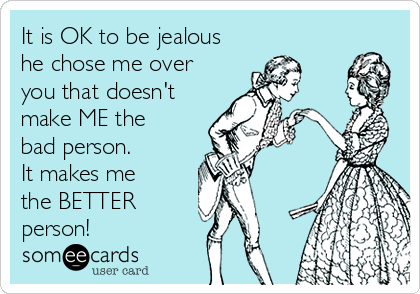
The third place is shared by the personality types “Wrestler” and “Artist”. They are quite different from each other, because they are even in different groups. Wrestlers are not prone to hype, although they are its instigators, while Artists cannot live without risk, gambling, extreme sports. Wrestlers are compassionate, independent and charming, while Artists live in a colorful, sensual world that is filled with ideas, communication with people.
In conclusion, I would like to say that all personality types are beautiful in their own way. We are all individual and unique. I fulfilled my goal and identified the predominant type of personality “Scientist”. She also made a brief description of those codes, the number of which prevailed over the rest. I was satisfied with the work done. It was very exciting to conduct a survey and guess until the last what type of personality will become the leader.
Literature:
- https://trends.rbc.

Learn more
